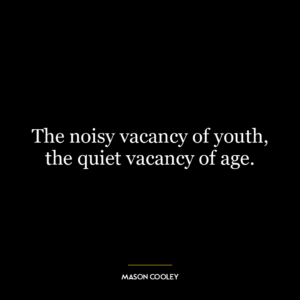Saying “I love you” makes a demand, but creates no obligations.
This quote, “Saying ‘I love you’ makes a demand, but creates no obligations,” is a profound observation about the nature of expressing love. The act of saying ‘I love you’ inherently makes a demand on the recipient to respond in kind or at least acknowledge the sentiment. It’s an emotional appeal that seeks reciprocation or validation. However, despite this inherent request for affirmation, it does not create any obligation on the part of the recipient to respond in any particular way.
The phrase ‘creates no obligations’ highlights how genuine expressions of love should be free from expectations and conditions. Love cannot be forced or demanded; it must be given freely and received willingly. An obligation implies duty or responsibility which can sometimes lead to resentment if one feels pressured into reciprocating feelings they may not share.
Applying this idea to today’s world where relationships are often complicated by social media and other external pressures, it reminds us that authentic love should remain simple and unconditional. In personal development terms, understanding this concept can help individuals express their emotions more honestly without expecting anything in return.
Furthermore, it encourages emotional maturity by acknowledging that others have their own feelings which might not mirror ours exactly as we want them to. It teaches respect for others’ autonomy and emotional integrity while managing our own expectations in relationships.
In essence, saying “I love you” is more than just expressing an emotion; it’s also about understanding its implications – knowing that while these words bear your heart out inviting affectionate response from another person – they do not bind anyone into feeling or acting a certain way towards you.















